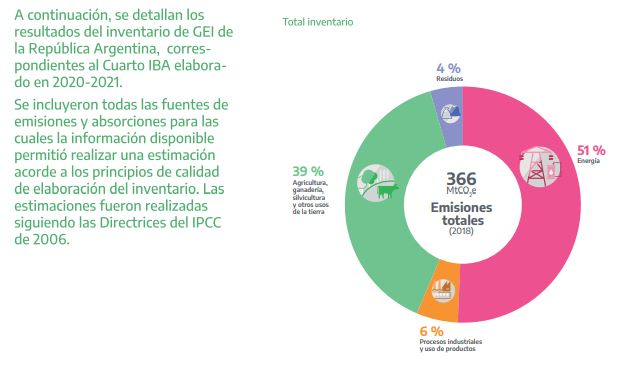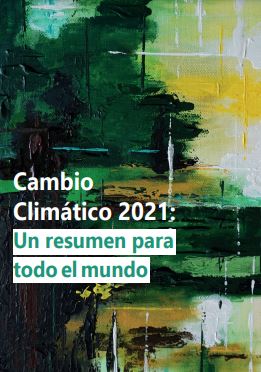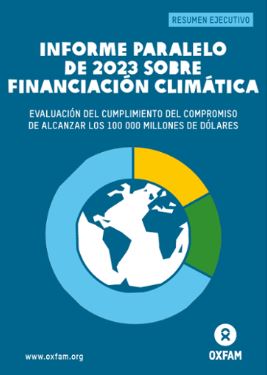El cambio climático es una de las principales amenazas que enfrenta la especie humana.
Comprender sus causas, consecuencias y qué podemos hacer al respecto es nuestro trabajo de todos los días.
En esta página te acercamos la mejor información disponible para que puedas sacar tus propias conclusiones.
Argumentos de los negacionistas que desinforman sobre el Cambio Climático
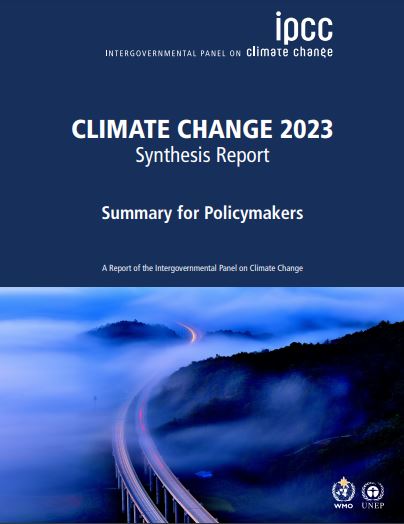
10 destacados del último informe del IPCC
(1) No hay duda de que los seres humanos somos los responsables del cambio climático. Ya observamos un aumento de 1,1°C por encima del promedio 1850–1900. La actividad natural (solar y volcánica) es responsable de afectar entre -0,1°C a +0,1C la temperatura promedio global. La variabilidad interna fue del orden de -0,2°C a +0,2C. No hay duda, somos nosotros.
(2) Las emisiones de gases de efecto invernadero no dejan de aumentar debido al uso insostenible de la energía, el uso de la tierra, los cambios en el uso de la tierra, los estilos de vida y los patrones de producción y consumo. Las emisiones netas antropogénicas se estimaron en casi 60 GtCO2-eq* en el 2019, un 12% más altas que en 2010 y un 54% más altas que en 1990.
(3) Estamos modificándolo todo, muy rápido y eso tiene consecuencias. Se han producido cambios generalizados y rápidos en la atmósfera, el océano, la criosfera y la biosfera. El cambio climático causado por los seres humanos ya está afectando la frecuencia, intensidad y duración de muchos fenómenos meteorológicos y climáticos extremos en todas las regiones del mundo. Esto ha provocado impactos adversos generalizados y pérdidas y daños relacionados con la naturaleza y las personas.
Seguir leyendo …
Conceptos básicos y definiciones
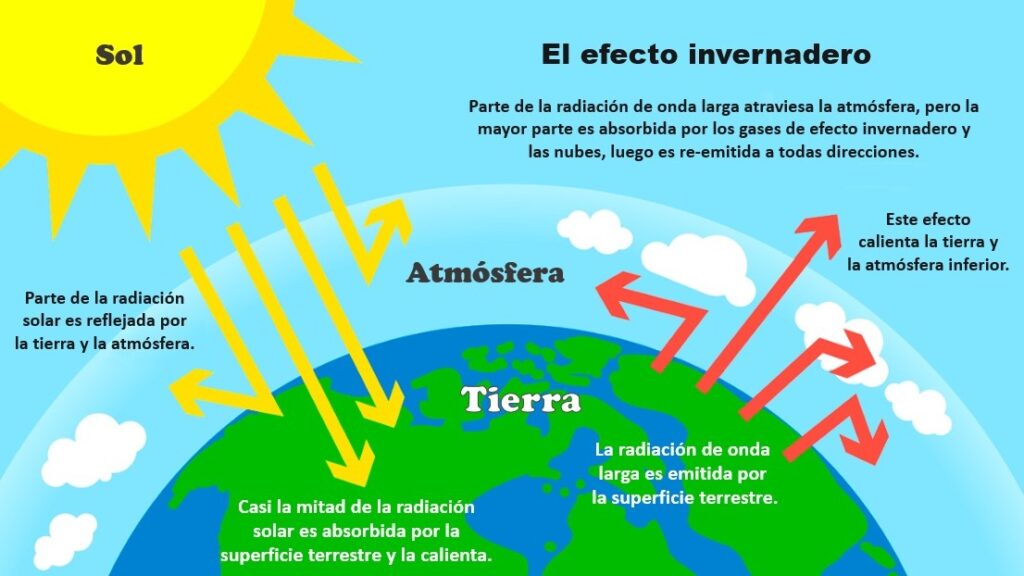
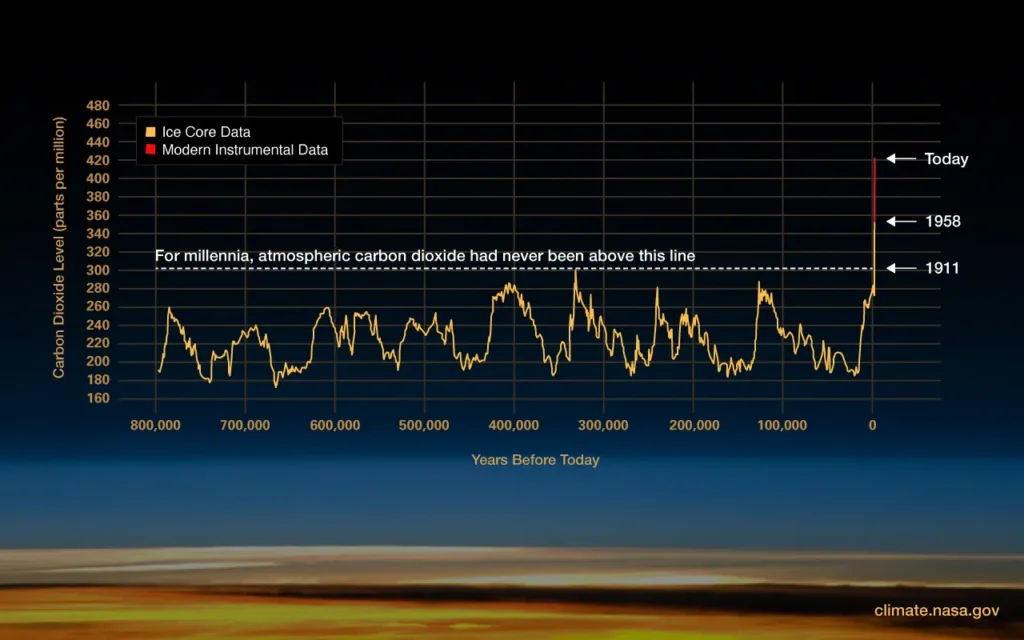
Inventario de Gases de Efecto Invernadero de Argentina
Más información en esta página web.
Informes recomendados
Documentales recomendados
“Una verdad incómoda” (An Inconvenient Truth, 2006): Dirigido por Davis Guggenheim, este documental presenta la lucha de Al Gore contra el cambio climático y ofrece una visión convincente de los efectos del calentamiento global.
“Antes que sea tarde” (Before the Flood, 2016): Producido y narrado por Leonardo DiCaprio, este documental examina los impactos del cambio climático en todo el mundo y aborda soluciones para combatirlo.
“Nuestro planeta” (Our Planet, 2019): Aunque es una serie documental en lugar de una película, “Nuestro planeta” ofrece una impresionante visión de la belleza de la naturaleza y cómo el cambio climático está afectando a nuestro planeta.
“Chasing Ice” (2012): Este documental sigue al fotógrafo James Balog mientras documenta el retroceso de los glaciares debido al cambio climático, utilizando cámaras de lapso de tiempo para capturar impactantes imágenes visuales.
“El futuro de la energía” (The Future of Energy, 2013): Explora las fuentes de energía renovable y sus beneficios para combatir el cambio climático.
“La verdadera historia del cambio climático” (The True Cost of Climate Change, 2015): Este documental examina los impactos del cambio climático en el mundo y presenta soluciones para abordar el problema.
“Los límites de nuestro planeta: Una mirada científica” es un documental dirigido por Jonathan Clay y protagonizado por David Attenborough y Johan Rockström. En este documental, Attenborough y Rockström analizan el colapso de la biodiversidad de la Tierra y explican que no es demasiado tarde para solucionarlo
Libros recomendados
“Clima” (El gato y la Caja 2022). Este libro fue realizado de forma abierta y en comunidad. Los borradores de los capítulos estuvieron disponibles online para que cualquier persona pudiera leerlos y comentarlos, y para que las autoras y autores pudieran corregir, modificar o fortalecer los textos finales.
Todo lo que necesitás saber sobre el cambio climático. Libro de Martín De Ambrosio. Que el cambio climático es un hecho es algo que ahora solo unos pocos niegan. Los científicos se han puesto de acuerdo en que es un fenómeno inédito en la historia de la humanidad, con consecuencias en todos los aspectos que uno se pueda imaginar, desde la economía hasta la política nacional e internacional y la geografía.
La Argentina y el cambio climático. Vicente Barros, Inés Camilloni. La actualidad que reviste en estos días la problemática del Cambio Climático tiene un carácter indiscutible. A diario, desde diferentes sectores (científicos, de divulgación, informativos) de uno u otro modo se aborda la cuestión por medio de noticias, comentarios, difusión de nuevos descubrimientos en el tema, alertas.
“Saving Us: A Climate Scientist’s Case for Hope and Healing in a Divided World” es un libro escrito por Katharine Hayhoe, una científica del clima y profesora de la Universidad Tecnológica de Texas. En este libro, Hayhoe aborda la crisis climática y ofrece una perspectiva de esperanza y curación en un mundo dividido.
“La transición energética en la Argentina: Una hoja de ruta para entender los proyectos en curso” es un libro escrito por Maristella Svampa y Pablo Bertinat. En este libro, los autores abordan la transición energética en Argentina y los desafíos que enfrenta el país en su camino hacia una matriz energética más sostenible.
“Re Calientes: Por qué la crisis climática es el problema más urgente de nuestro tiempo” es un libro escrito por Laura Arrocha que aborda la crisis climática y su impacto en la sociedad. En el libro, Arrocha explica la ciencia detrás del cambio climático y cómo afecta a la vida en la Tierra.
“All We Can Save: Truth, Courage, and Solutions for the Climate Crisis” es un libro editado por Ayana Elizabeth Johnson y Katharine K. Wilkinson que presenta una colección de ensayos y poemas escritos por 60 mujeres líderes en el movimiento climático3. El libro se enfoca en la crisis climática y cómo las mujeres están liderando el camino hacia soluciones prácticas y esperanzadoras
“Under a White Sky: The Nature of the Future” es un libro escrito por Elizabeth Kolbert que aborda la crisis climática y cómo la humanidad está lidiando con ella. En el libro, Kolbert explora las innovaciones tecnológicas que se están utilizando para abordar la crisis climática, como la geoingeniería solar y la edición genética.
Personas a las cuales seguir
Carolina Vera es una científica argentina especializada en el estudio de la variabilidad climática y el cambio climático en Sudamérica.
Celeste Saulo es una científica y docente argentina especializada en meteorología y ciencias atmosféricas y la primera mujer al frente de la Organización Meteorológica Mundial
Christiana Figueres es una diplomática costarricense arquitecta del Acuerdo de París cuando asumió como secretaria ejecutiva de la Convención Marco de las Naciones Unidas sobre el Cambio Climático (CMNUCC).
Inés Camilloni es Profesora Asociada e investigadora CONICET en Universidad de Buenos Aires, Vice Chair IPCC WG1.

